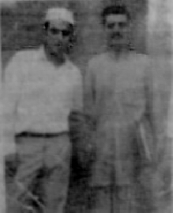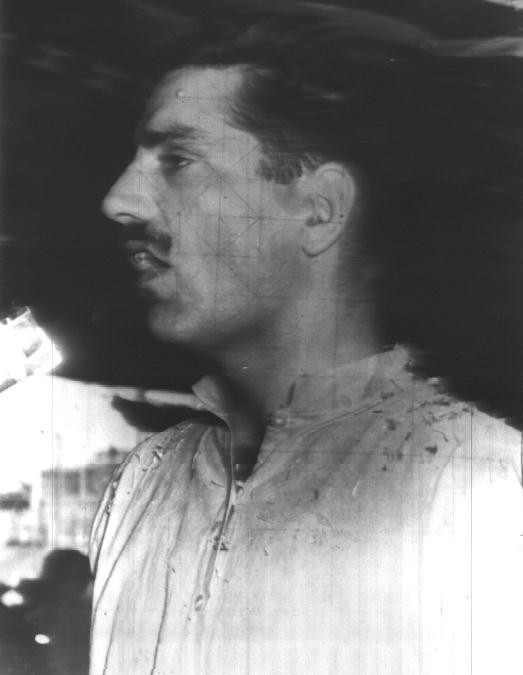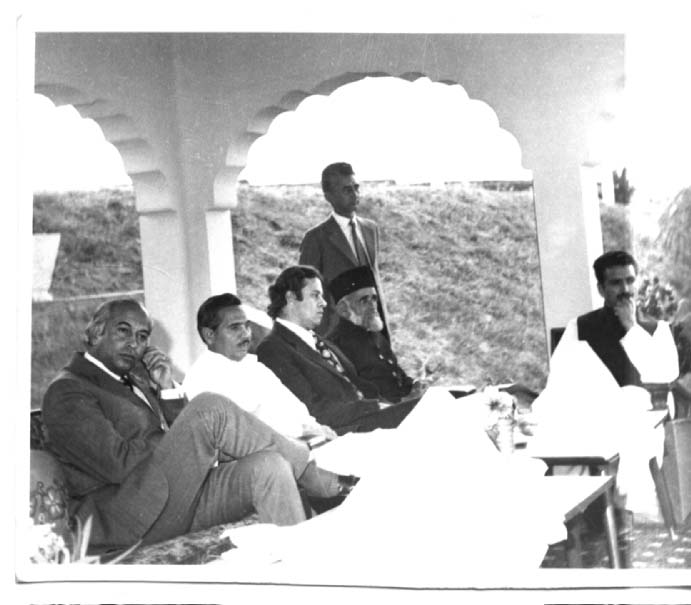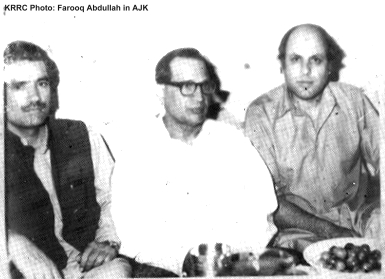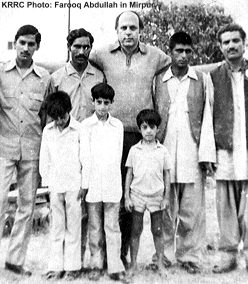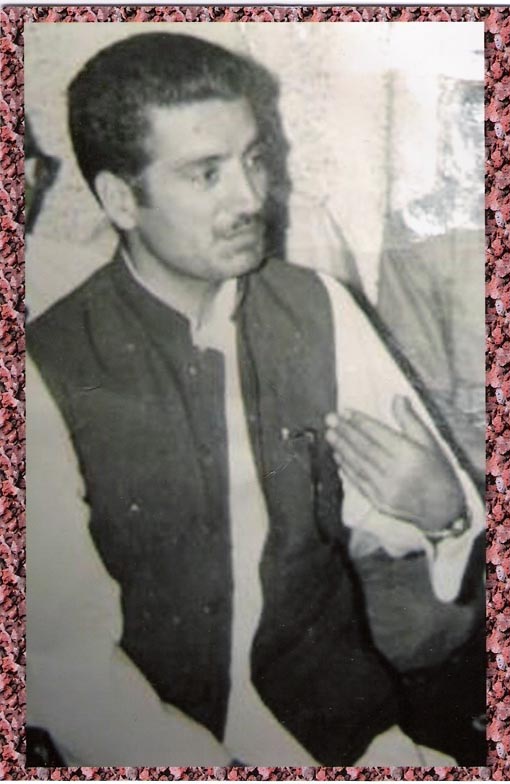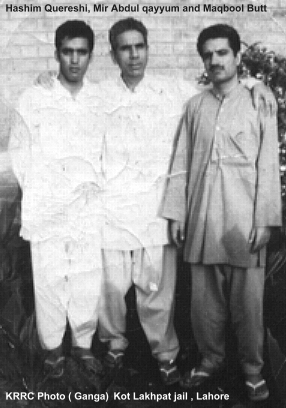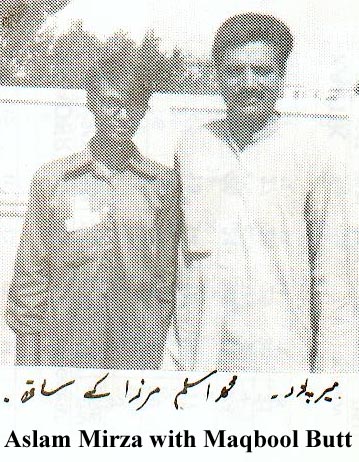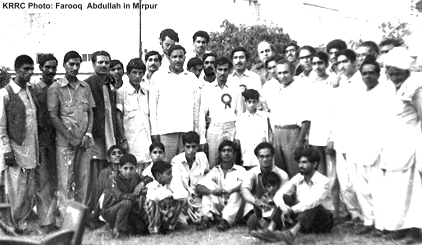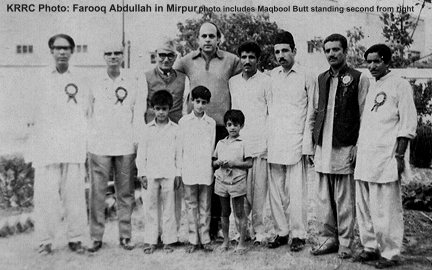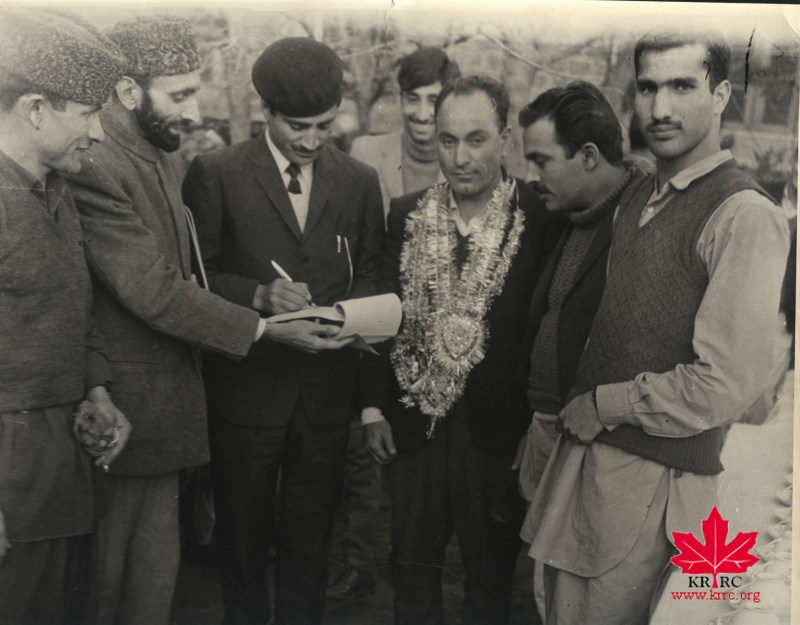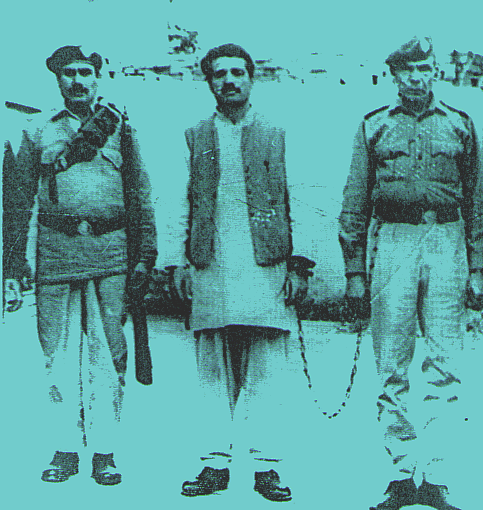Shaheed-e-Kashmir
An extra-constitutional execution, an act of vengeance
The constitutionality of Maqbool's hanging has raised many a question ever since February 11, 1984. There is no denying the fact that Maqbool was accused of murder and that a court had awarded death sentence. It is also a fact that the sentence was upheld first by the high court and then by the apex court. Notwithstanding all this, the state government had all the justification to force New Delhi to defer the execution.When Maqbool was hanged more to avenge the killing of an Indian diplomat in Britain than to fulfil the constitutional requirements, a case was pending disposal against him in a Srinagar court. And, according to Indian laws, Maqbool could not be hanged till the final disposal of the case. But, both the government at New Delhi and the state government acted in haste. Farooq Abdullah, the then chief minister, signed the black warrant to save his job, which of course he could not as he was dethroned only after three months of the event which later on changed the course of Kashmir history.Secondly, the close relatives of Maqbool Bhat had preferred a mercy petition before the president of India. The president had not taken any decision on the petition at least up to February 9th 1984. It is in place to mention here that the president of India is only a nominal head. He has to act according to the advise of the council of ministers. But adjudicating upon a mercy petition is well within the powers of the president. His verdict in such cases is final. However, the constitution requires that the president must act in a judicious way for effective administration of justice.
Maqbool Butt was born on 18th February 1938 to a peasant family in Trahagam village Tehsil Handwara, district Kupwara. His father was called Ghulam Qadar Butt. All we know about his mother is that she died when Maqbool Butt was 11 years old pupil in the village’s primary (junior) school. He had a younger brother Gulam Nabi Butt. As per traditions Ghulam Qadar married again to provide mothering for his children. From second wife he had two sons, Manzoor Ahmed Butt and Zahoor Ahmed Butt and three daughters. The early years of Maqbool Butt’s life, like thousands of other Kashmiri children were shaped by the harsh living conditions that characterised the life of peasants at this juncture of Kashmir history.
It was the feudal system in the Maharaja’s Kashmir that forced Maqbool Butt to participate in the first political action in his life long struggle against suppression, occupation and for equality, freedom and social justice. Telling this story on 12 April 1972 from Camp Prison Lahore in a letter written in reply to Azra Mir, the daughter of veteran Kashmiri political activist and intellectual, G.M. Mir who was in prison with Maqbool Butt in relation to the hijacking of an Indian plane ‘Ganaga’, Maqbool Butt wrote:
After completing his secondary school certificate, Maqbool Butt moved on to St. Joseph College in Baramula. This was a private missionary college. Here he gained his first degree (BA) in history and political science.
The journey on that road to great sacrifice for Maqbool Butt was started while still a student at St. Joseph College. Responding to a question about crossing over to Pakistan in the above interview that was recorded in room number 26 of Mujahid Hotel International, Maqbool Butt said:
First and foremost problem before Maqbool Butt in Pakistan was to continue his education and at the same time find a job to meet the expenses. For with out that “it was hard to live in Pakistan’. Therefore, I joined ’Injam’ (end/conclusion/performance), a weekly magazine, as sub-editor and started my working life as a journalist. I did my MA (from Pehswar university) in Urdu literature and worked with ‘Anjam’ till the start of full time politics in 196 (Khawaja, 1997). Meanwhile his marriage was arranged by his uncle with a Kashmiri woman Raja Begum in 1961. He had two sons from this wife, Javed Maqbool born in 1962 and Shaukat Maqbool in 1964. In 1966 he married to a school teacher Zakra Begum and had a daughter Lubna Maqbool from her.
Soon they started planning escape from the prison and within a month and half managed to escape from the prison in Srinagar. Maqbool Butt later wrote in great detail about the escape and submitted that before the Special Trial Court in Pakistant where he was tried along with other NLF members for ‘Ganga’ hijacking. However, only a brief account of the escape is included here from one of his interviews:
Ganga, an Indian airliner was hijacked on 30 January
1971 at 1305 hours while on its routine flight from Srinagar to Jammu.
In total it was carrying 30 people including four crew members. The
Hijackers were two young Kashmiris Hashim and Ashraf Qureshi. They
brought the plane to Lahore airport and demanded the release of about

Twenty
two years on, since Kashmir’s first dreamer for an independent Kashmir
was sent to the gallows, his dream, his prophecy and his legacy lives
on, comments


